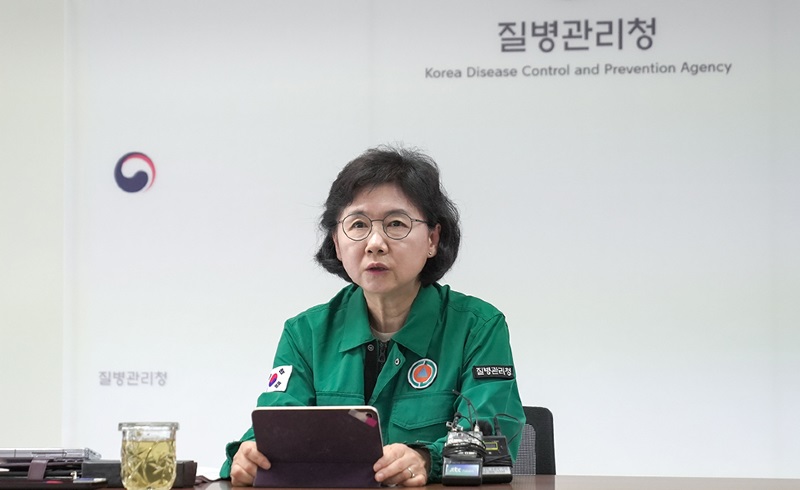
질병관리청(질병청)이 코로나19 메신저 리보핵산(mRNA) 백신 접종 부위에서의 면역반응 조절 과정을 규명했다고 1일 밝혔다. The Korea Disease Control and Prevention Agency (KDCA) on Sept. 1 identified the regulation process of immune response of a messenger RNA (mRNA) vaccine for COVID-19 in the injected part of the body.
질병청 국립보건연구원은 mRNA 백신의 접종 부위에서 초기 면역증강 효과를 유도하는 메커니즘을 발견했다. 해당 연구 결과는 국제학술지 ‘네이처 커뮤니케이션즈(Nature Communications)’에 지난 27일 게재됐다.
The Korea National Institute of Health (KNIH) under the KDCA discovered a mechanism that boosts the early stage of immune response of such a vaccine in the injected part of the body. The result of the study was published in the Aug. 27 edition of the global academic journal Nature Communications.
이번 연구는 실험용 쥐에 코로나19 mRNA 백신을 투여한 뒤 주사 부위의 근육조직에서 세포를 분리해 분석하는 방식을 이용해 mRNA 백신이 초기에 면역 증강효과를 발생시키는 방식을 밝혀낸 것이다. 국립보건원 공공백신개발지원센터 감염병백신연구과와 한국과학기술원 박종은 교수 연구팀이 공동 수행했다.
Based on tests on lab mice, the research showed how mRNA vaccines develop immune-boosting effects in the early stage of vaccination by isolating and analyzing cells of muscle tissues of the injected part of the body. The study was jointly conducted by the division of infectious disease vaccine research under the Center for Vaccine Research under the KNIH and a research team led by professor Park Jong-Eun from the Korea Advanced Institute of Science and Technology.
mRNA 백신 기술은 코로나19 대유행을 거치며 짧은 시간 내에 전 세계적으로 그 가치를 입증하면서 감염병 대응뿐만 아니라 암백신과 같은 치료 전략으로도 활발한 개발이 이뤄지고 있다. 그러나 더 안전하고 효과적인 백신 개발을 위해서는 mRNA 백신의 초기 면역학적 메커니즘에 대한 깊은 이해가 중요하다고 질병청은 설명했다.
The COVID-19 pandemic proved mRNA vaccine technology’s world-leading status as a valuable source of responses to contagious diseases in a relatively short period. Studies are also underway on using mRNA as a treatment strategy to develop cancer vaccines. The KDCA said deeper understanding of the immunization mechanism of mRNA vaccines in the early stage is essential to develop safer and more effective vaccines.
mRNA 백신은 mRNA 분자와 이를 둘러싼 지질나노입자(lipid nano particle)로 구성된다. 이번 연구에서 연구팀은 주사부위에서 지질나노입자로 인해 염증성 사이토카인과 케모카인 유전자 발현이 증가되어 초기면역증강 효과가 유도되는 것을 확인했다. 주입된 mRNA 분자는 인터페론 베타 유전자 발현을 통해 접종 부위 및 림프절의 이동성 수지상세포(migratory dendritic cells)의 활성화를 돕고 백신에 의한 세포성 면역반응을 증진시키는 것으로 나타났다.
mRNA vaccines consist of mRNA molecules and lipid nanoparticles surrounding them. In this study, researchers confirmed that the nanoparticles raised the expression of inflammatory cytokines and chemokine genes in the injected part of the body, which raises the immunization effect in the early stage. The injected mRNA molecules in the body were found to help activate migratory dendritic cells in the injection site through expression of interferon beta genes, thus raising the cellular immune response caused by the vaccine.
이번 연구는 mRNA 분자와 지질나노입자 자체에 의해 활성화되는 초기 면역반응 경로 및 작용 메커니즘에 대한 통찰을 얻는 데 기여했다는 점에서 의미가 있다고 질병청은 밝혔다.
The KDCA hailed this study for raising understanding of early immune response pathways and mechanisms activated by the mRNA molecules and lipid nanoparticles.
지영미 질병청장은 “mRNA 백신 기전에 대한 연구를 바탕으로 향후 mRNA 플랫폼의 환자맞춤형 치료제 백신 등 다양한 활용 및 효과적인 차세대 백신기술 사용화가 이뤄질 수 있도록 힘쓰겠다”고 말했다.
KDCA Commissioner Jee Youngmee said, “Based on studies of mRNA vaccine mechanisms, we will strive to develop mRNA-platform treatment vaccines customized for patients and commercialize effective next-generation vaccine technology.”
윤소정 기자 arete@korea.kr
By Yoon Sojung, arete@korea.kr